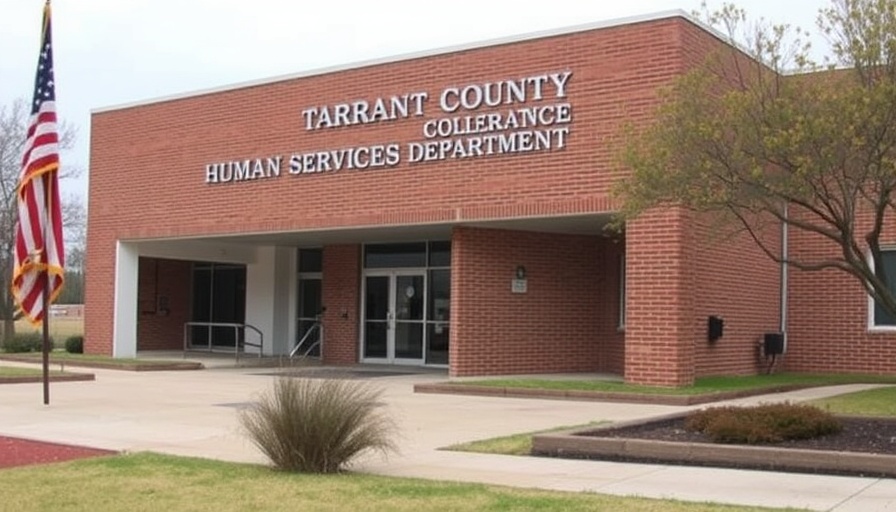
Tarrant County's Bold Move: The Future of Human Services
In the wake of a recent decision that has sent ripples through the community, Tarrant County leaders have voted to dismantle the Human Services Department. This move, characterized by some as an unfortunate step backward, aims to outsource essential services like rent and utility assistance to local nonprofits. The implications of this decision extend far beyond budget sheets and efficiency metrics—hitting directly at the heart of community support systems.
Understanding the Motivation Behind Outsourcing
The push for outsourcing was primarily fueled by financial considerations. Helen Giese, Director of the Tarrant County Budget and Risk Management Department, indicated that operating the former department was inefficient, costing the county $2.42 for every dollar in services rendered, while the national average hovers around $0.65 to $0.75. While fiscal responsibility is necessary, this rationalization raises important questions regarding the quality and accessibility of services once offered directly by the county.
Human Impact: Voices from the Departing Staff
The decision to lay off staff members without public discussion or comprehensive prior notice has left many feeling blindsided. Retirees of the Human Services Department conveyed their sorrow in poignant testimonies during the commissioners' meeting. Eric Boatner, after 30 years in service, expressed that losing the department felt like losing part of his family—”It’s like losing part of my family,” he said, echoing the sentiments of his colleagues. This emotional backlash underscores the human ramifications often overshadowed by budgetary concerns.
The Role of Nonprofits: Can They Fill the Gap?
As Tarrant County prepares to transition services to nonprofit organizations, many are left to wonder about the efficacy and reliability of these entities in providing essential community support. While nonprofits can offer a certain level of flexibility and community connection, they might not have the same resource breadth as a government-managed operation. Will they be able to maintain the level of care that residents have come to expect? Or, will the outsourcing model inadvertently create service disruptions?
Broader Implications for Local Governance
This strategic pivot raises larger questions about the role of local government in social service provision. As we push towards a model where services are handled outside of direct governmental oversight, we must grapple with issues of accountability and equity. History shows that privatization can lead to disparities in service availability, particularly in underserved communities, prompting concern about who gets left behind in this new framework.
Community Reaction and Resistance
Initial pushback from the community has been significant, with some residents rallying to advocate for a reconsideration of the decision. Local activist groups are already mobilizing, pointing out that the voices of those directly impacted are often the last to be considered in high-stakes decisions like this. There are concerns that this change could exacerbate existing problems with homelessness, food insecurity, and mental health support—a sobering prospect for a community already facing significant challenges.
A Call for Transparent Transition Plans
Transparency is vital in the transition phase; residents need clarity on how changes will be implemented and which organizations will take over the services. Ensuring a smooth handover can mitigate potential service lapses and maintain continuity for those relying on county support. Engaging the community for input would be an essential step to ensure these changes are beneficial rather than harmful.
The Future of Social Services in Tarrant County
As the closure of the Human Services Department unfolds, Tarrant County is at a crossroads regarding how best to serve its vulnerable populations. This decision will likely set a precedent for how local governments address social welfare moving forward. For many residents, especially those in need, the stakes have never been higher. How this transition will impact them remains to be seen, but it is a critical moment that demands thoughtful, community-focused solutions.
In conclusion, Tarrant County’s decision reflects a broader national conversation about the role of government in social services. As policymakers navigate these challenging waters, the voices of those impacted must not only be heard—they must shape the future of community support.
 Add Element
Add Element  Add Row
Add Row 



Write A Comment